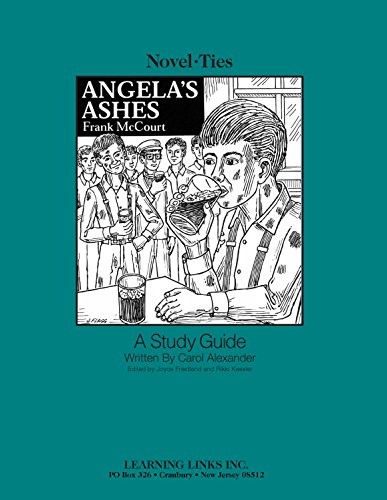There’s something about stories of hardship and resilience that pulls you in, almost against your will. Angela’s Ashes, Frank McCourt’s memoir of his harrowing childhood in Ireland, is one of those stories. From the first page, I was hooked, not just by the tale of grinding poverty and loss, but by the voice that tells it—wry, unflinching, and somehow, despite everything, full of humor.
1. A Childhood in Ruins
When I think about Frank McCourt’s early years, what comes to mind is a landscape of gray skies and relentless rain, where the lines between childhood and survival blur. Born in Depression-era Brooklyn, Frank’s family soon returns to Ireland, seeking refuge from their struggles. But Limerick, the city they land in, offers no relief. Instead, it delivers a kind of poverty that’s hard to fathom—holes in the walls, fleas in the bed, and hunger gnawing at them day in and day out.
It’s not just the poverty that strikes me, though. It’s the constant stream of tragedies that seem to follow the McCourt family like a dark cloud. Frank loses siblings to illness, watches his mother, Angela, wither under the weight of grief and despair, and sees his father, Malachy, drink away what little money they have. There’s a sense of inevitability in their suffering, as if life itself is conspiring against them. Yet, even in the darkest moments, Frank’s narrative never loses its edge. He tells his story not with bitterness but with a sharp, clear-eyed humor that makes the bleakness bearable.

2. The Weight of Poverty
What really hit me as I read Angela’s Ashes was how poverty isn’t just a lack of money. It’s a heavy, suffocating force that invades every corner of life, pressing down on you until there’s almost no room to breathe. For the McCourt family, poverty means living in a house that’s barely more than a hovel, where the walls weep with dampness and the stench of the outside lavatory seeps into everything. It means surviving on charity and the shame that comes with it, as Angela begs for coal to keep her children warm and scraps of food to keep them alive.
But the hardest part to witness is the way poverty steals away hope. Frank’s father, Malachy, is a tragic figure, a man who could never hold onto a job or a dream. Every penny he earns ends up at the bottom of a pint glass, and every promise he makes to his children is broken before the night is through. It’s easy to condemn him, but McCourt’s portrayal is so nuanced that you can’t help but see the human being beneath the failures—a man who’s as much a victim of his circumstances as his wife and children are.
3. The Struggle for Identity
As Frank grows up, he begins to wrestle with the idea of who he is and who he wants to be. Living in a world where survival is the only goal, dreams are a luxury few can afford. But Frank dreams anyway. He dreams of escape, of going to America, of a life beyond the squalor and the misery of Limerick. What struck me most about Frank’s journey is how he clings to the small things that give him a sense of identity—his love of reading, his sharp wit, and his desire to rise above the hand he’s been dealt.
Education becomes Frank’s lifeline, the one thing that offers a glimpse of a future where he isn’t defined by his poverty. He devours books, even as his classmates and teachers mock him for his ragged clothes and his hungry belly. In the pages of literature, Frank finds a refuge, a place where he can be more than just another poor Irish boy. And it’s this fierce hunger for knowledge that eventually propels him out of Limerick and into a new life.
4. The Unseen Strength of Angela
One of the most powerful aspects of Angela’s Ashes is the portrait of Frank’s mother, Angela. She’s a woman who, despite the crushing weight of her circumstances, refuses to give up. Angela’s strength isn’t the loud, heroic kind that we often see in stories of hardship. It’s quiet, steady, and relentless. She endures the death of children, the shame of begging, and the heartbreak of a husband who’s never there when she needs him. Yet, she never stops fighting for her children, doing whatever it takes to keep them alive.
What I found most moving about Angela’s character is her resilience. Life beats her down over and over again, but she always gets back up. Her love for her children is fierce and unwavering, even when she has nothing left to give. And in the end, it’s Angela’s strength that anchors the family, giving Frank the foundation he needs to eventually break free from the cycle of poverty.
5. Finding Light in the Darkness
Angela’s Ashes is a story steeped in sorrow, but it’s also a story of survival, of finding light in the darkest of places. What stayed with me after reading it is the sense that no matter how deep the darkness, there’s always a glimmer of light if you’re willing to look for it. For Frank, that light comes in the form of humor, of storytelling, of the small acts of kindness that punctuate his bleak childhood.
Frank’s ability to find humor in the most dire situations is what makes Angela’s Ashes such a compelling read. It’s not just a story of misery; it’s a story of resilience, of finding joy in the little things, of holding onto hope even when there seems to be none left. And in the end, it’s this resilience that allows Frank to escape the poverty and despair that defined his early years and build a life that’s entirely his own.
Conclusion: What Does It Mean to Survive?
As I turned the last page of Angela’s Ashes, I was left with a lingering question: What does it really mean to survive? Is it simply about getting through the day, or is it about finding a way to thrive despite the odds? Frank McCourt’s story is one of survival, but it’s also one of triumph—a triumph of the human spirit, of humor, and of love. It made me think about the ways in which we all struggle, and the strength it takes to keep going when life seems intent on knocking us down. How do we find that strength within ourselves? And what can we learn from Frank’s journey that might help us on our own?




